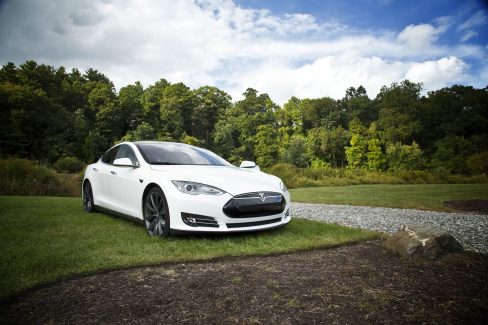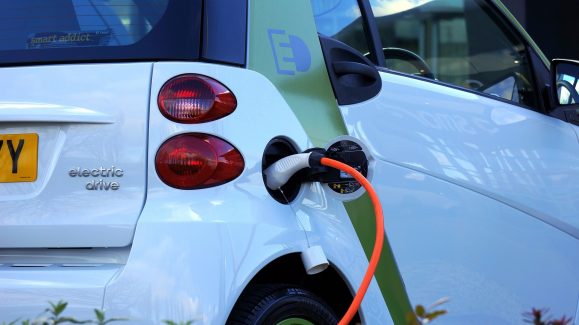Myth Busters on hybrid and electric cars.

Hybrid cars have been on the market for 20 years as eco-friendly automotive alternatives continue to rise in popularity among environmentally conscious consumers. Car manufacturers are now offering more options to cater to drivers who want to invest in the planet’s health. But are these ecologically clean cars affordable for the everyday buyer? And, are they safe? Washington Life clarifies the confusion of hybrid and electric vehicles, debunking myths surrounding these sustainable modes of transportation.
Myth 1: Electric cars cost more Environmentally friendly vehicles are often marketed as luxury products, but not all are unaffordable. Several models are available in the mid-$20,000 range. Vincentric LLC recently released its annual hybrid-vehicle report, concluding that hybrids have a lower cost of ownership. Though buyers pay more up front for the car, they pay less in gas, maintenance, depreciation and insurance over time, according to Consumer Reports. Upon purchase, owners may have to pay the newly enacted hybrid and electric vehicle fee to pay for the nation’s highways. According to the National Conference of State Legislatures, Delaware, Maryland and the District require no fee, while Virginia charges $64. Owners and future purchasers may also qualify for significant refunds as federal and state governments adopt green energy practices. All electric and plug-in hybrids purchased in or after 2010 may be eligible for a federal income tax credit of up to $7,500, based upon the vehicle’s battery capacity. Some states offer additional incentives.
Myth 2: Batteries for electric or hybrids last only a few years Electric cars have stronger warranties than standard combustion cars. The battery should last as long as the car. According to Consumer Reports, Toyota hybrid battery replacements costs vary between dealerships but typically fall within the $2,200-$2,600 range. Hybrids are favored for city driving because continuous stopping and slow driving does not rely on a gas engine to power. Hybrids regenerate electricity with a regenerative brake that converts the car’s kinetic energy into power that can be used immediately or stored until needed.
Myth 3: Non-combustible energy-fueled vehicles cause more pollution Yes and no. More than 60 percent of electricity pollution is still generated from fossil fuels, according to the U.S. Environmental Protection Agency, but hybrid and electric vehicles are a step toward lowering direct fuel emissions.
Although electricity produced from charging stations may contribute to air pollution, the EPA categorizes all-electric vehicles as zero-emission as they produce no direct exhaust.
Electric cars do shift the source of emissions, and produce 50 percent less than conventional cars on a national average, according to the Alternative Fuels Data Center for the Department of Energy. Scientists are currently experimenting with biofuel made from plant sugars that are compatible with conventional engines, making it possible for cars to run entirely on nonrenewable resources.
Myth 4: Radiation from electromagnetic field (EMF) may cause greater health risks EMF is associated with the use of electrical power and various forms of man-made lighting that have potential for cellular damage the National Institute of Environmental Health Sciences. All electrical devices emit EMF radiation, but there is fear that hybrid cars with big batteries and powerful electric motors may subject occupants to unhealthy doses. There is no official threshold establishing what an unhealthy dose may be and studies have not concluded that hybrids contribute to EMF radiation. Though there are detectable levels in all hybrid and electric vehicles, the Consumer Report found no evidence that hybrids expose drivers to significantly more EMF than conventional cars.
The Best Hybrid and Electric Cars
As ranked by U.S. News and World Report

Hybrid and Electric Cars
#1 2019 Toyota Avalon Hybrid $36,550 – $42,850
#1 2019 Toyota Camry Hybrid $28,250 – $32,825
#3 2019 Honda Accord Hybrid $25,320 – $34,990
Hybrid and Electric SUVs
#1 2019 Jaguar I-Pace $69,500 – $85,900
#2 2019 Porsche Cayenne Hybrid $79,900
#3 2019 Chrysler Pacifica Hybrid $39,995 – $45,395
Luxury Hybrid and Electric Cars
#1 2018 Tesla Model S $74,500 – $135,000
#2 2018 Tesla Model 3 $49,000
#3 2018 Lexus GS Hybrid $63,635 – $68,680
This article appearing in the April 2019 issue of Washington Life magazine.




